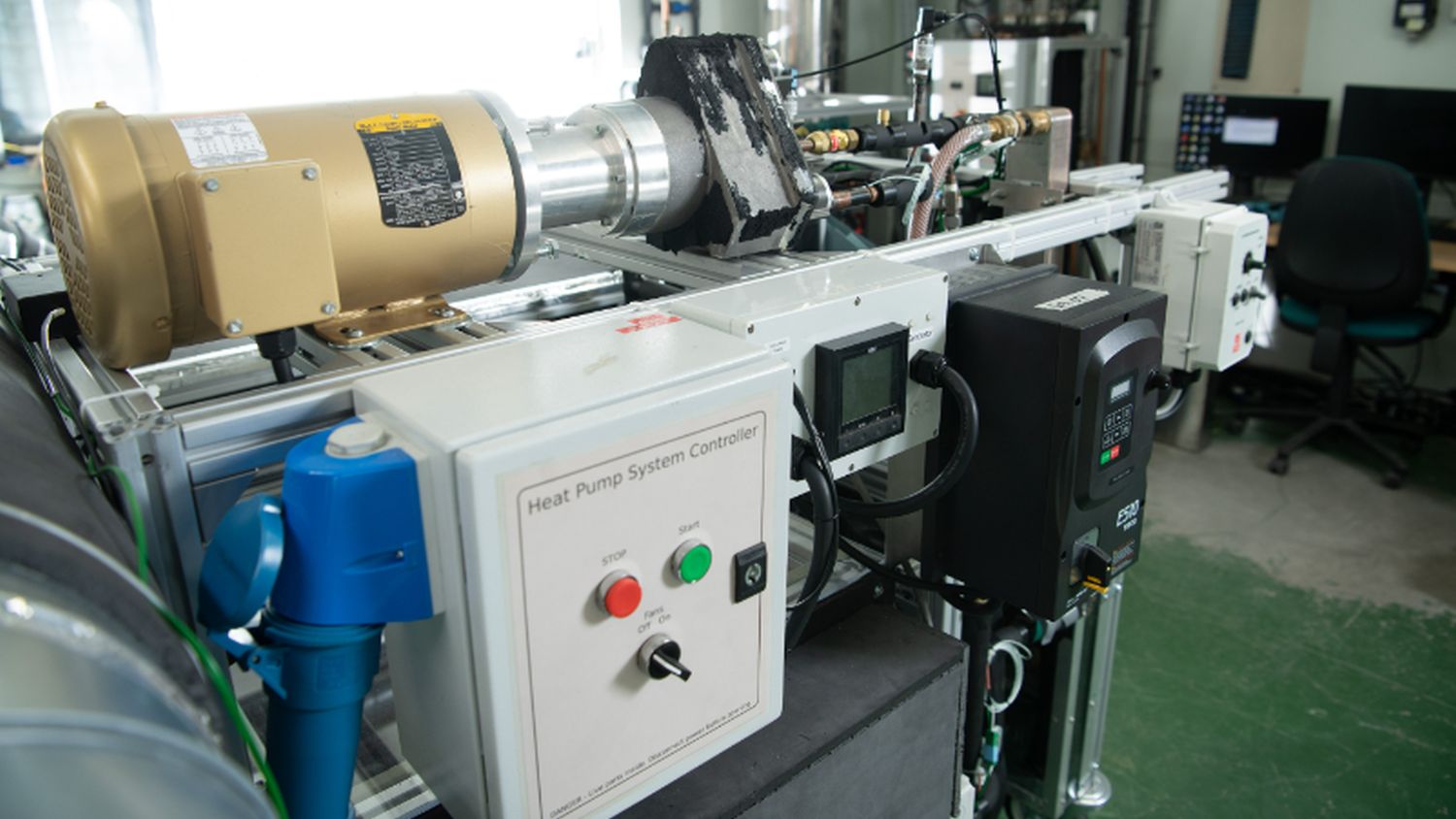
A new type of air source heat pump developed by researchers at the University of Glasgow could perform more efficiently in cold conditions.
Around 40% of carbon emissions come from heating powered by fossil fuels. Heat pumps generate lower carbon emissions when powered by renewable electricity but cold weather can impact their heating capacity and energy efficiency.
Their high capital and operational costs and relatively low heat supply temperature have limited the growth of their take-up in the UK, despite a government target for 600,000 heat pump installations a year by 2028.
Integrated heat storage
In a new paper published in the journal Communications Engineering, the researchers outlined how ‘flexible heat pump technology’ could address the problems of current heat pumps by integrating heat storage – a small water tank and a coil of copper tube.
The water tank recovers some excess thermal energy produced during the pump’s operation, and stores it as an additional heat source for the heat pump’s operation later.
The recovered heat has a much higher temperature than the outdoor air that provides the heat source, and it can be reused as a temporary heat source. Researchers claimed this “substantially” reduced the pump’s power consumption.
For air source heat pump applications, the recovered heat stored in the water also allows the flexible heat pump to run continuously during defrosting. The current generation of heat pumps interrupt the heat supply during defrosting while still consuming electricity.
‘3.7% more efficient’
The researchers built a working prototype of their new heat pump using off-the-shelf components. Testing showed the design to be around 3.7% more efficient than current design with a relatively low heat supply temperature of 35 °C.
They precited that after optimisation, it could be up to 10% more efficient than current products when the heat supply temperature increases to 65 °C.
Zhibin Yu, professor of Thermal Energy at the University of Glasgow’s James Watt School of Engineering, led the research and development of the flexible heat pump.
He said: “We’re at a critical juncture in our global move towards net-zero, where we need to start scaling up our low-carbon infrastructure quickly and effectively. That urgency is being particularly keenly felt at the moment, where energy prices are rising and many households are facing rapidly escalating bills.
“The advantages of the flexible heat pump against current heat pump products is analogous to the advantages of condensing boiler against the non-condensing boiler – both recover excess heat to greatly improve efficiency.
“Our flexible heat pump solves many of the problems with the current generation of heat pumps, making them capable of delivering improved performance while using less power. The cost of a small water tank heat storage is marginal, but the power saving is significant. It can be widely applied for all kinds of the heat pump applications. We believe that this could help drive improved take-up of heat pump technology in homes across the UK.”










